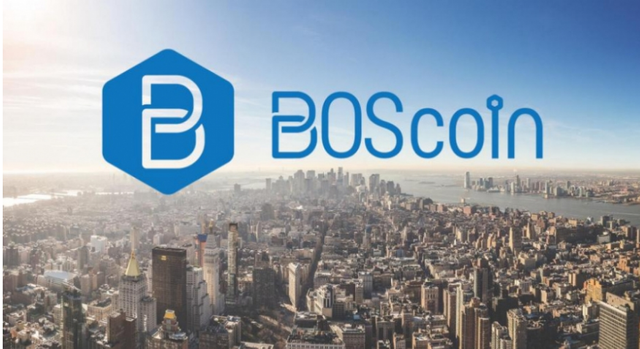BOScoin - The new virtual currency

BOScoin is a new virtual currency created by the South Korean Fintech startup BlockChain OS. According to regional publication Pulse News, like existing virtual currencies, the new digital currency is also based on a blockchain. However, according to the Seoul-based company, the difference consists in the blockchain's ability to allow higher transaction speeds. BOScoin transaction speeds will reach up to 1000 transactions per second, in line with credit card processing speeds.
BlockchainOS has presented the concept of the BOScoin platform at meetups in London and Berlin/ The Foundation has been answering questions from the wider community on a wide range of interest areas including design, architecture, technical, operations applications, and governance.
BOScoin is designed as a platform for a self-evolving crypto currency, an improved version of other popular virtual currencies such as Ethereum and Bitcoin. BOScoin was developed to work with Trust Contracts that provide an approachable and decidable and framework for creating and executing blockchain contracts.
The decision making body for the new BOScoin digital currency is the Congress Network. Congress members have the right to decide on what proposals are eligible for Commons Budgets. They also have the right to decide the functions of the blockchain itself and the revision of the policies. The Congress Network aims to create a more productive and democratic decision making process. With its particular policy rules, BOScoin is expected to avoid the hard-forking and community separation of blockchain.
The official ICO invites the general public to participate in this international crypto currency platform. The pre-ICO funding has already raised US$3 million. According to a report from Korean publication DataNet, all code and tools used by the South Korean developers of BOScoin will be released as open-source. A next-generation smart contract solution powers BOScoin. The system is bases on an "inference engine".
The creators of BOScoin hope to overcome the operational and technical issues present in many other crypto currencies. While deterring the centralization of power, the issuance plan and the incentive scheme of the BOScoin cryptocurrency platform aims to create value for the coin. While being more energy efficient, low latency BOScoin transactions will be created with the help of the Modified Federated Byzantine Agreement algorithm.
A user or a machine is helped to decipher the contract by this core code and software engine. This approach is opposed to existing smart contracts that are currently written in program-level code. For most users, these existing smart contracts may prove difficult to understand. The South Korean developers of the BOScoin appear to aim, essentially, for a more-straightforward blockchain.

The BlockchainOS Foundation that issue and manage the token currency BOScoin is established in Switzerland. BlockchainOS has engaged EY's Asia-Pacific data and analytics capability called EYC3 in its efforts to support development of the BOScoin cryptocurrency. EY has a global experience in cryptocurrency and blockchain, reaching a footprint across 150 countries. The strategy behind the new BOScoin digital currency platform is taking advantage of the critical leading data and analytics capabilities of EYC3.
By utilizing their governance expertise, as well as their wide range of experience in working with private global companies, EY will be able to apply their known how to supporting the BOScoin platform's self-evolving governance system. The platform provides the foundations for a secure system where even non-technical users can create sharable and immutable blockchain contracts.
Video:
Links:
https://boscoin.io/en/home/
https://bitcointalk.org/index.php?topic=1759662.0
If you like this post then an upvote and/or following me is very much appreciated.

This post has been ranked within the top 10 most undervalued posts in the first half of Apr 19. We estimate that this post is undervalued by $5.02 as compared to a scenario in which every voter had an equal say.
See the full rankings and details in The Daily Tribune: Apr 19 - Part I. You can also read about some of our methodology, data analysis and technical details in our initial post.
If you are the author and would prefer not to receive these comments, simply reply "Stop" to this comment.